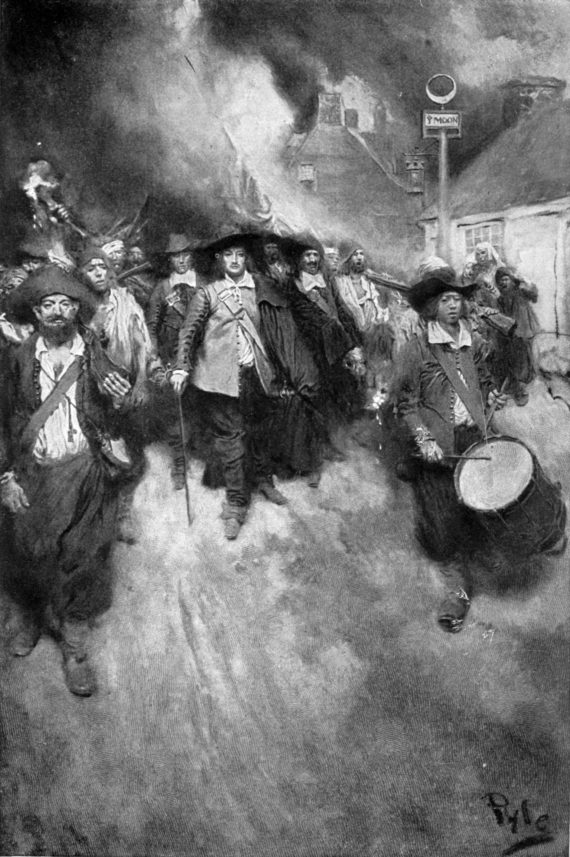
JOHN COTTON (fl. 1660s – 1720s) was an early settler of Virginia, never to be confused with the awful Cotton family of Massachusetts. In 1814 an anonymous poem about Bacon’s Rebellion in Virginia (1676) was found among some old mss. and subsequently published. It was long regarded as an anonymous treasure of American colonial literature. Twentieth-century poet and critic Louis Untermeyer called it the best thing written in America in the 17th century, said that “it is one of the noblest anonymous elegies we possess” and was “our first indubitable [American] poem.” Not until 1937 was the author identified and a complete text assembled due to the painstaking work of the great scholar of Southern literature, Prof. Jay B. Hubbell of Duke University. He identified the author as John Cotton I of Stafford County, Virginia, who was a witness to Bacon’s Rebellion. The poem is presented here with incidentals modernised.
Death, why so cruel? What no other way
To manifest thy spleen but thus to slay
Our hopes of safety, liberty, our all,
Which through thy tyranny with him must fall
To its late chaos? Had thy rigid force
Been dealt by retail and not thus in gross,
Grief had been silent. Now we must complain
Since thou in him hast more than thousands slain
Whose lives and safeties did so much depend
On him, their life, with him their lives must end.
If’’t be a sin to think Death bribed can be,
We must be guilty. Say ’twas bribery
Guided the fatal shaft. Virginia’s foes,
To whom for secret crimes just vengeance owes
Deserved plagues, dreading their just desert,
Corrupted Death by Paracelsian art
Him to destroy; whose well-tried courage such
Their heartless hearts, nor arms, nor strength could touch.
Who now must heal those wounds or stop that blood
The heathen made and drew into a flood?
Who is’t must plead our cause? Nor trump nor drum
Nor deputations; these alas! are dumb
And cannot speak. Our arms, though ne’er so strong,
Will want the aid of his commanding tongue,
Which conquered more than Caesar. He o’erthrew
Only the outward frame; this could subdue
The rugged works of nature. Souls replete
With dull chill cold he’d animate with heat
Drawn forth of reason’s limbec. In a word,
Mars and Minerva both in him concurred
For arts, for arms, whose pen and sword alike,
As Gato’s did, may admiration strike
Into his foes, while they confess withal
It was their guilt styled him a criminal.
Only this difference does from truth proceed:
They in the guilt, he in the name must bleed,
While none shall dare his obsequies to sing
In deserved measures until time shall bring
Truth crowned with freedom and from danger free
To sound his praises to posterity.
Here let him rest, while we this truth report:
He’s gone from hence unto a higher court
To plead his cause, where he by this doth know
Whether to Caesar he was friend or foe.






